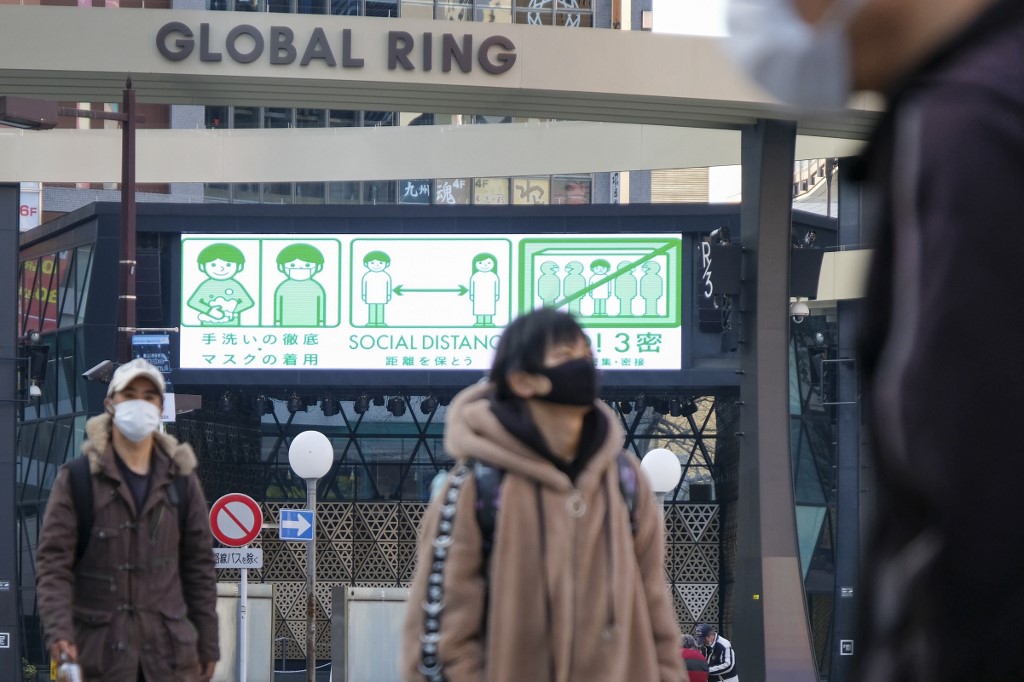Japan's government will declare a coronavirus state of emergency in the greater Tokyo area on Thursday, hoping the month-long measure can bring a surging wave of infections under control.

People walk past a public service display promoting social distancing amid the Covid-19 pandemic near a terminal station in Tokyo January 7, 2021. (Photo: AFP)
The new restrictions will be far less strict than harsh lockdowns seen in other parts of the world, and will be softer even than the first state of emergency implemented in Japan last spring.
For now, it will affect Tokyo and three surrounding areas that petitioned the government to make the move, though at least one other region has already suggested it could seek to be included.
Around a quarter of Japan's population lives in the greater Tokyo area, and the region accounts for a large portion of the country's daily Covid-19 cases.
The declaration will primarily target restaurants and bars, which are being asked to stop serving alcohol by 7pm and close an hour later.
Residents of affected areas will be asked to avoid non-essential outings after 8pm and businesses will be urged to maximise teleworking, with the goal of reducing commuter traffic by 70 percent.
An official announcement is not expected until late Thursday, after Prime Minister Yoshihide Suga holds consultations with the government's virus taskforce.
But the minister in change of Japan's pandemic response outlined the expected shape of the measure on Thursday morning, warning that the medical system in the capital was "stretched thin".
"Every day we are seeing record numbers of infections. We have a very serious sense of crisis," Yasutoshi Nishimura said.
The emergency -- expected to last until February 7 initially -- comes with Tokyo reporting record new case numbers in recent weeks, and the infection rate and death toll rising nationwide.
Still, the outbreak in Japan remains relatively small, with just over 3,700 deaths since the country's first infection was detected in January 2020.
The government had been reluctant to call a state of emergency for fear of sending the economy back into reverse shortly after it emerged from recession. The greater Tokyo region accounts for a third of Japan's GDP.
Suga has seen his government's approval ratings tank over its handling of the new wave of infections -- particularly its controversial backing of a domestic travel campaign even as case numbers spiked.
He has said this emergency will be more limited and focused than last year's, despite warnings from some medical experts that the measures may be insufficient.
Schools will not close and major events will be permitted, with the cap for spectators revised down to 5,000 people or 50 percent capacity, whichever is smaller.
Japanese law does not currently allow authorities to enforce cooperation with the requests, though the government is planning legislation permitting fines to be levied on businesses that do not comply.
For now, subsidies will be offered to businesses that close early, and the government could name-and-shame those that fail to do so.


